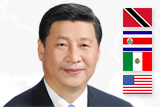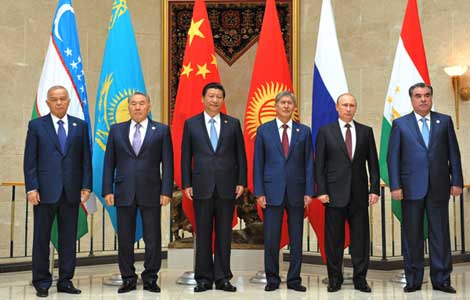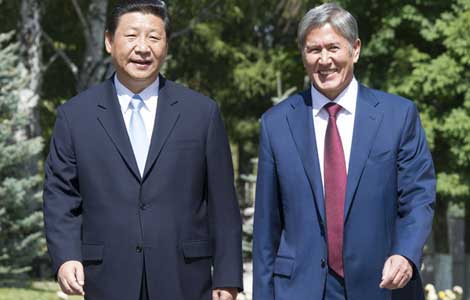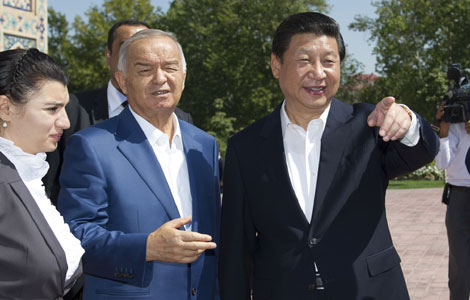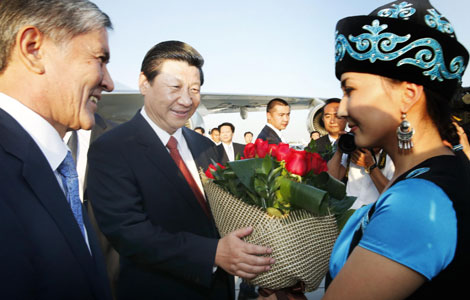China expects further co-op at G20 summit
Updated: 2013-09-06 13:43
(Xinhua)
|
|||||||||
BEIJING - Leaders of the Group of 20 (G20) economies gathered in the northwestern Russian city of St. Petersburg Thursday to discuss the world's current economic and financial situation.
In the face of a sluggish recovery in developed countries and fluctuations in emerging economies, the leaders will aim for further cooperation on the economic front.
Differences among members on political and security issues have strained the spirit of cooperation ahead of the summit.
However, the world still needs cohesion at the summit, which is expected to focus on the common interests of ensuring the global economy's stead recovery, rather than their political differences.
China, the world's second largest economy, hopes the summit will push forward cooperation, opening-up, reforms and further development.
ECONOMIC COOPERATION
Since the first G20 summit in 2009, leaders of the world's major economies have shown unprecedented courage and vision in promoting development, which has gradually established the summit as the top forum for global economic cooperation.
Prior to the summit, Chinese President Xi Jinping described the G20 as a "major forum for international economic cooperation" that would push the international community to strengthen coordination on macro economic policy.
Nevertheless, the summit has been distracted by a number of political factors, especially Washington's PRISM spying program and the Syrian crisis.
Although G20 members account for some 90 percent of the global economy, the group should not act as the UN and be involved in political and security disputes, but cooperate for "growth and employment" to cure the ailing global economy.
Chinese leaders have made clear that China's best contribution to the global economy is to ensure its own economic development and enhance economic competitiveness through structural reform.
Thanks to the dividend of reform, China's economic development will become steadier in the future.
In an ever-interconnecting world, it is indispensable for countries to coordinate their economic policy, which is the main aim of the G20.
The recent financial turbulence in emerging markets was partly caused by the U.S. Federal Reserve's move to taper down quantitative easing. As this kind of policy change has obvious spillovers, G20 members should communicate with each other effectively to guide the market.
Related Stories
World leaders pressure Obama over Syria at G20 summit 2013-09-06 10:21
Xi calls for closer G20 ties to boost world economy 2013-09-06 04:54
Xi aims to defend China's economic stability at G20 2013-09-05 21:34
BRICS countries confer at G20 summit 2013-09-05 20:11
Tokyo's lack of sincerity means no China-Japan summit at G20 2013-09-05 17:27
Chinese Vice-Finance Minister meets press at G20 2013-09-05 16:58
China's G20 role 2013-09-05 10:45
Schedule




